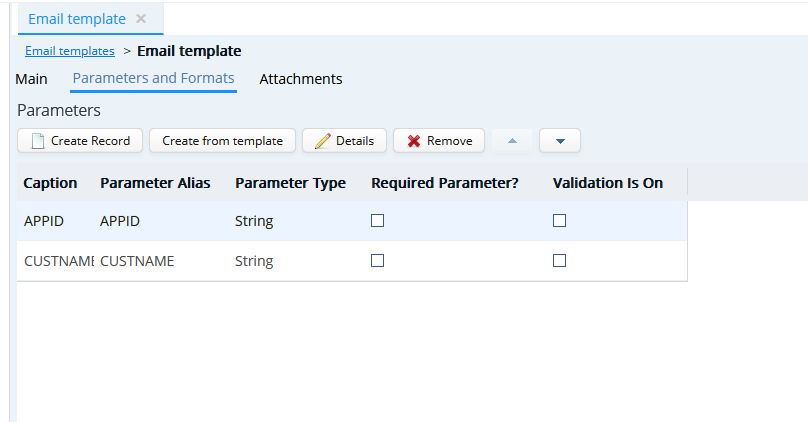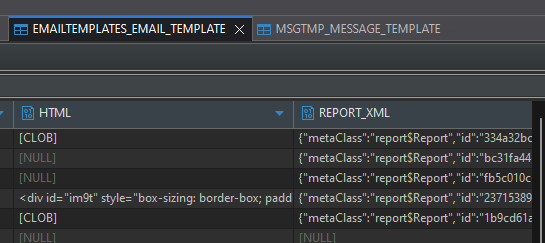Hi Jmix Support team,
My application is using the EmailTemplates add-on in CUBA, and I am trying to migrate it to use the MessageTemplates add-on in JMIX instead. But I encounter a roadblock while doing so, will dive deeper into details from here onwards to explain the situation.


As shown above, currently my template has Parameters that are defined for it, which are mainly defined in the EMAILTEMPLATES_EMAIL_TEMPLATE.REPORT_XML column. Right now in JMIX’s MSGTMP_MESSAGE_TEMPLATE table, there is only the CONTENT column available for the HTML code of the template but no similar columns to replace the usage of REPORT_XML column to define my parameters. There is a MSGTMP_MESSAGE_TEMPLATE_PARAMETER table available for this but it would make it very troublesome to migrate these 1 by 1 as I have at least a few hundreds of templates in the system this way with existing clients using them, please provide some suggestions to solving this or what is the ideal way to migrate from EmailTemplates to MessageTemplates that Jmix team would recommend to existing CUBA users, especially with the current data stored this way.
Furthermore, another problem is that in Message Templates we do not have a way to define data like FROM / TO / CC / SUBJECT etc. now, where should these defined previously in the EmailTemplates go? Will EmailTemplates be introduced back again in the future as it seems like an important functionality for enterprise applications to have?
Best Regards,
Wei Jian.